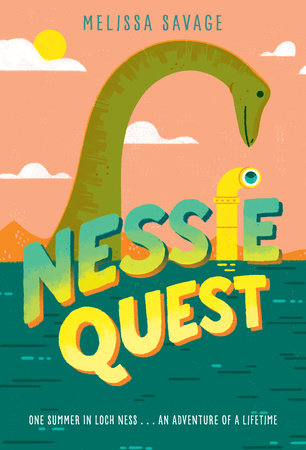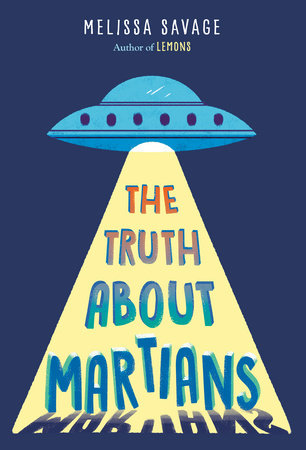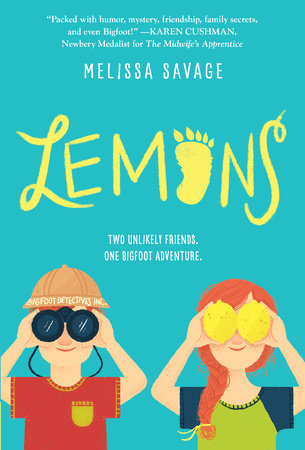Melissa Savage Author Essay
Writing mysteries for kids as bibliotherapy
“Words may seem innocent enough, but I’m here to tell you they’re a way bigger deal than people know. They are so powerful, in fact, that they can change you in a single, solitary second.” — Ada Ru Fitzhugh, Nessie Quest
Words tell our stories.
And story has always been an integral part of who we are as human beings. We use it to document our histories and share our dreams for the future. Story can heal us too, connecting us at a level deeper than we even realize.
Growing up, books were everything to me. Not only did they entertain me, they informed me, offered a sense of hope, and inspired me to become. Books guided me in directions I didn’t even know existed.
When I was nine years old, I ordered Willo Davis Robert’s, Don’t Hurt Laurie, from a Scholastic Book order sheet. It was a book about child abuse. Even at nine, the story of Laurie and her mother touched me to my soul and would even effect the choices I made throughout my life. In fourth grade I became a mentor for young children in our elementary school and in sixth grade I became a peer counselor. And it was this story that also inspired me to become a child and family therapist later in life where I specialize in trauma informed care for children.
In therapy, there are so many different methodologies to choose to best reach kids. And because of my love of writing and story I incorporate a lot of bibliotherapy within my work. I’ve found it to be one of the most effective modalities for one simple reason, story reaches deep. Even with kids who are hard to reach, story finds a way. I could tell you amazing times I saw how much story made a difference or was a way to make a connection.
I have so many memories where story made an impact in my work with kids of every age. One story that made a particular impact was a book about a kitty who went to live with a new family because it’s birth family didn’t treat that kitty the way it deserved to be treated. I read it to a little four year old boy who had so much anxiety that he struggled to be still for even a short period of time. But as soon as I started to read the words of this very special book, he sat completely still. Silently drinking in every single word and examining each picture over his gold, wire rimmed frames. When I turned the very last page, his eyes locked on mine and he exclaimed, “That kitty is just like me!”
Another amazing bibliotherapy breakthrough was with a young teen who worked with another therapist in the office. No matter how hard my co-worker tried, she couldn’t reach this child. Nothing seemed to work. Then one day this teen came into session and handed my colleague a book, Sharon Draper’s, Forged by Fire, a two time Coretta Scott King award winner and told the therapist if she wanted to know her, really know her, she should read the book. It’s a powerful story of trauma and abuse. But mostly, it’s an amazing story of courage and survival. This young teen had given her therapist an invitation to see into her through the words written by Sharon Draper. A story that spoke deeply to this child and let her know she wasn’t alone in this world. What an amazing invitation and what an honor to have received it.
Story is who we are and it is how we heal.
Although I love to write about the mysteries of cryptozoology in my middle grade novels, there are other themes embedded in the stories as well. Deeper themes of kindness, friendship, standing up for someone when they can’t stand up for themselves, differences that make us special, healing from loss and at each stories core, it is always my intention more than anything else, to provide hope. In my newest book, Nessie Quest, there is a special character named, Hammy Bean Tibby. Hammy Bean is blind and wants desperately to be acknowledged for his accomplishments and not his disability. In Lemons, Lemonade Liberty Witt helps Tobin to find his own voice to stand up to his bullies. In The Truth About Martians, Mylo Affinito searches for a way to live on after a loss has gutted him to his core.
How can we best prepare children at an appropriate age level, yet continue to protect them from what they are not yet ready to know? Story can provide an experiential environment that allows them to experience life lessons at a distance, at the same time gaining insights, building adaptive coping skills, mastering empathy and even aspiring to become something bigger than they ever even imagined they could be. As parents, educators and protectors of children, it’s up to us to make sure our kids have the best tools in their toolbelt to endure, overcome and to be the positive change we need for the world today. And the very words that tell our stories are the best tools there are.
In the wisdom of Ada Ru Fitzhugh, words “can change you in a single, solitary second.”
Can they ever.







